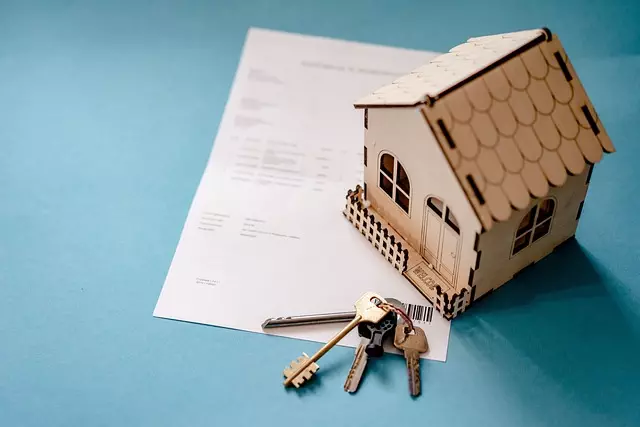Commercial property insurance is a critical safety net for businesses, offering tailored protection against diverse risks and potential losses. It covers structures, equipment, inventory, and business income during reconstruction or closure due to unforeseen events like natural disasters, vandalism, or accidents. Understanding policy intricacies, including limits, deductibles, and exclusions, is key to choosing the right coverage. Tailored policies with optional add-ons ensure peace of mind and financial security, allowing businesses to focus on growth and innovation. Effective management involves regular reviews, property assessments, record-keeping, and open communication with insurers to mitigate risks and safeguard investments.
In today’s dynamic business landscape, safeguarding your commercial property is paramount. Understanding Property Insurance goes beyond a basic coverage; it’s a shield against unforeseen events that can cripple your operations. This comprehensive guide delves into the intricacies of Commercial Property Insurance, elucidating its significance, diverse policy options, and crucial coverage areas. By exploring these aspects, businesses can make informed decisions, ensuring they’re protected against potential risks and liabilities.
Understanding Commercial Property Insurance: A Comprehensive Guide

Commercial property insurance is a crucial safety net for businesses, offering protection against potential losses and disruptions. It goes beyond standard home or auto insurance, catering specifically to the unique risks associated with commercial properties. This type of insurance covers not just the physical structure but also business equipment, inventory, liability claims, and lost income during periods of reconstruction or closure.
Understanding property insurance policies involves grasping key components like coverage limits, deductibles, and exclusions. Policies can vary widely in scope and price, so it’s essential to read and analyze the fine print. Most policies are tailored to specific business types, with options for additional protections like business interruption, flood, or earthquake coverage. By carefully assessing these offerings, businesses can secure a policy that provides comprehensive protection, ensuring peace of mind and financial stability.
Why Is Commercial Property Protection Essential for Businesses?

Commercial property protection is a cornerstone for businesses aiming to thrive in today’s competitive landscape. It goes beyond mere coverage; it’s an investment in the stability and future of your enterprise. Property insurance, a vital component, shields against financial losses stemming from unforeseen events such as natural disasters, vandalism, or property-related accidents. These occurrences can lead to significant downtime, repairs, and legal liabilities, all of which can severely impact cash flow and profitability.
By securing adequate property coverage, businesses ensure that their physical assets—from office spaces to industrial facilities—are safeguarded. This protection allows for swift recovery and business continuity, enabling companies to focus on growth and innovation rather than dealing with the aftermath of disruptive events. Moreover, it provides peace of mind, knowing that investments in real estate are protected, fostering an environment conducive to long-term success.
Different Types of Commercial Property Insurance Policies

Commercial property insurance is a vital shield for businesses, offering comprehensive protection against potential risks and losses. These policies are tailored to cover various aspects of a commercial venture, ensuring peace of mind for business owners. The market offers several types of property insurance designed to cater to distinct needs.
One common category includes all-risk or open perils coverage, which is a broad policy that protects against most causes of loss, excluding specific named perils. This type is ideal for businesses seeking extensive protection. Alternatively, specified perils insurance provides cover for only specific events like fire, theft, or storms, and business owners must ensure these risks are relevant to their operations. Each policy has its advantages, catering to different budgets and risk appetites, ensuring businesses can select the best fit for their unique requirements.
Key Coverage Areas in Commercial Property Insurance

Commercial property insurance is a comprehensive solution designed to safeguard businesses from potential risks and financial losses. At its core, this coverage protects against physical damage or destruction to buildings, structures, and equipment used in commercial operations. This includes protection against perils such as fire, lightning, storms, floods, earthquakes, and other natural disasters. Moreover, it extends to liability coverage, shielding businesses from claims related to property damage, personal injuries, or death of individuals on the premises.
Key areas of coverage also encompass business income loss, ensuring continuity and financial stability during periods of interruption due to insured events. This can include extra expenses incurred while the property is being repaired or rebuilt, as well as lost revenue resulting from the suspension of operations. Additionally, commercial property insurance may include coverage for valuable possessions within the building, such as inventory, furniture, fixtures, and electronic equipment, protecting against theft, damage, or loss.
How to Choose the Right Commercial Property Insurance Policy

Selecting the optimal commercial property insurance policy is a meticulous process that requires careful consideration of your business’s unique needs. The first step involves assessing the type and value of your property, including any structures, fixtures, and equipment, to determine the adequate coverage limits. This means evaluating potential risks such as fire, theft, vandalism, or natural disasters specific to your location. Understanding these perils will help you decide on the right policy that covers direct losses and liability claims arising from them.
Additionally, consider your business interruption needs. This aspect ensures financial protection during periods of operation halt due to insured events. Policies may offer varying levels of business continuity coverage, so review the terms to find one that aligns with your risk tolerance and financial stability. Remember, a well-tailored property insurance policy should provide comprehensive protection, offering peace of mind and safeguarding your business’s future against unforeseen circumstances.
Common Exclusions and Limitations in Commercial Property Insurance

Commercial property insurance is designed to safeguard businesses from financial losses due to unforeseen events, but it’s crucial to understand the common exclusions and limitations that come with such policies. These clauses delineate what’s covered and what isn’t, ensuring clarity for both insurers and insured businesses. Many standard policies exclude coverage for acts of terrorism, war, or civil unrest, meaning these incidents typically aren’t compensated by property insurance. Natural disasters like floods, earthquakes, and hurricanes are also often excluded, underscoring the importance of separate coverage for such risks.
Furthermore, property insurance usually doesn’t cover ongoing business interruption, only the direct costs of repairing or replacing damaged or destroyed property. Business owners should be aware that routine maintenance, normal wear and tear, or economic losses from slow business periods are generally not valid claims under property insurance policies. Knowing these exclusions helps businesses make informed decisions when choosing their coverage, ensuring they’re adequately protected against potential risks while understanding the limits of their policy.
Best Practices for Managing and Maintaining Your Commercial Property Insurance

Managing and maintaining your commercial property insurance is a vital aspect of safeguarding your investment. The best practices involve regular reviews of your policy to ensure it aligns with your business needs, especially as your operations evolve. Stay updated on coverage limits, deductibles, and specific exclusions or additions to prevent gaps in protection. Conducting routine assessments of your property, including its physical condition and potential risks, is essential. This proactive approach helps identify areas for improvement and ensures you have adequate insurance in place should unforeseen events occur.
Additionally, keeping comprehensive records of all property-related documents, such as purchase agreements, renovation plans, and maintenance logs, can significantly streamline the claims process if needed. Regular communication with your insurance provider is encouraged to clarify any doubts and stay informed about policy updates. By following these practices, business owners can effectively manage their Property Insurance, providing a safety net against potential financial losses.
